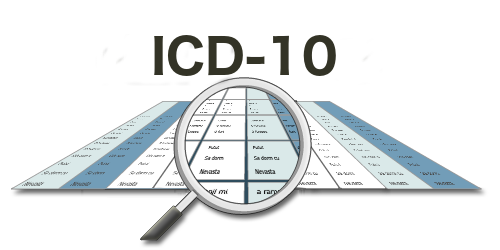Hearing loss is a common condition that affects millions of people around the world. Losing your hearing can have a significant impact on your quality of life, ability to communicate, and mental health and wellbeing. However, despite the prevalence of hearing loss, access to hearing healthcare services remains limited for many individuals.
Improving access to hearing healthcare services is essential for individuals with hearing loss to ensure that they receive the right care and support. In this post, we’ll look at some of the main challenges that individuals face when it comes to accessing hearing healthcare services and explore some of the main ways that access to these services could be improved.
Contents
- The Challenges of Accessing Hearing Healthcare Services
- Cost
- Lack of Awareness
- Limited Availability
- Stigma
- How to Improve Access to Hearing Healthcare Services
- Increasing Insurance Coverage
- Subsidies and Financial Assistance
- Raising Awareness
- Improving Access to Services
- Integration into Primary Care
- Investment in Professional Education
The Challenges of Accessing Hearing Healthcare Services
There are several barriers that may prevent some people from accessing the hearing healthcare services that they need. Some of the main ones are:
Cost
The cost of hearing healthcare services can be a major barrier for some people. For example, hearing aids can cost several thousand dollars, and might not always be covered by insurance, making them unaffordable for some individuals.
Lack of Awareness
Many people with hearing loss may not always be aware that they have a hearing problem or that there are treatment options available that they may benefit from. They may struggle with knowing where to go for help, or put off getting help due to feelings of embarrassment. Thankfully, the hearing healthcare industry is working to combat this, with easy online tools that people can use to take hearing screening tests from the comfort of their own home, or find a hearing healthcare professional near them, such as this tool at www.phonak.com/en-us/find-a-provider.
Limited Availability
In some areas, there may be a limited availability of hearing healthcare services. This may be a particular issue for remote or rural areas, where healthcare services in general are less accessible compared to in larger towns and cities. It may be difficult for individuals with hearing loss living in these areas to access the right care and support.
Stigma
Despite the fact that it is such a common condition, there is still a lot of stigma associated with hearing loss, which can prevent individuals from seeking help, or even acknowledging that they have hearing loss. This is especially true for younger people, who may mistakenly believe that hearing loss is only something the older generations struggle with.
How to Improve Access to Hearing Healthcare Services
There are several things that can be done to improve access to hearing healthcare services and ensure that everybody who needs hearing tests, hearing aids, and other hearing loss treatments can do so. These include:
Increasing Insurance Coverage
Increasing insurance coverage for hearing aids and other related services is one main way to improve access to hearing healthcare services. For many people who struggle to get the hearing healthcare that they need, more often than not, it’s due to the cost coupled with the fact that it is not covered by their healthcare insurance. Many health insurance policies do not currently cover hearing aids, for example, or may offer very limited coverage which creates a significant barrier to care. By increasing insurance coverage, more people will have access to the services and treatments that they need.
Subsidies and Financial Assistance
Offering subsidies and financial assistance to individuals who cannot afford hearing treatments is another option for making hearing healthcare more accessible to all. This might be in the form of government subsidies, grants, or other financial assistance programs offered by hearing healthcare providers, for example.
Raising Awareness
It’s important to focus on raising awareness about hearing loss and the treatment options that are available, in order to make it easier for individuals who need these services to access them. This will help with breaking down some of the stigma associated with hearing loss and encourage those who need help to seek it. More open communication regarding hearing loss can help those who feel embarrassed about their symptoms to realize that there is no need to be. This can be done through outreach initiatives, educational programs, and public health campaigns.
Improving Access to Services
For access to healthcare services to be improved, there needs to be a greater availability of hearing healthcare services in a wider range of locations. This can be achieved through expanding hearing healthcare facilities and providers, along with the use of innovative remote and telehealth services to ensure that individuals in underserved areas can still access the care that they need.
Integration into Primary Care
Another option for improving access to hearing healthcare services is to integrate hearing healthcare into more primary care services. By doing this, it may help with identifying hearing loss earlier on, and provide individuals with access to the support and treatments that they need to manage their hearing loss.
Investment in Professional Education
In some areas, a shortage of audiologists and hearing care professionals may compound the problems with access to hearing healthcare for patients. To address this issue, there should be greater investment in hearing healthcare education and training programs, coupled with more efforts to attract more professionals to the field. This might include increasing public awareness about this career path, creating more opportunities for audiologists to work in underserved areas, and providing financial incentives to students.
It is important to recognize that hearing loss is a common condition that can impact people of all ages and backgrounds. The needs of individuals with hearing loss can vary a lot. To improve access to hearing healthcare services, a comprehensive approach that considers the unique needs of different populations is necessary.
Improving access to hearing healthcare services is crucial to ensuring that people with hearing loss can lead independent, fulfilling lives. By addressing the various barriers to access and using a comprehensive approach involving education, financial support, and greater awareness, we can work together to ensure that everybody has access to the hearing healthcare services, testing, and treatments that they need to thrive with this condition.





